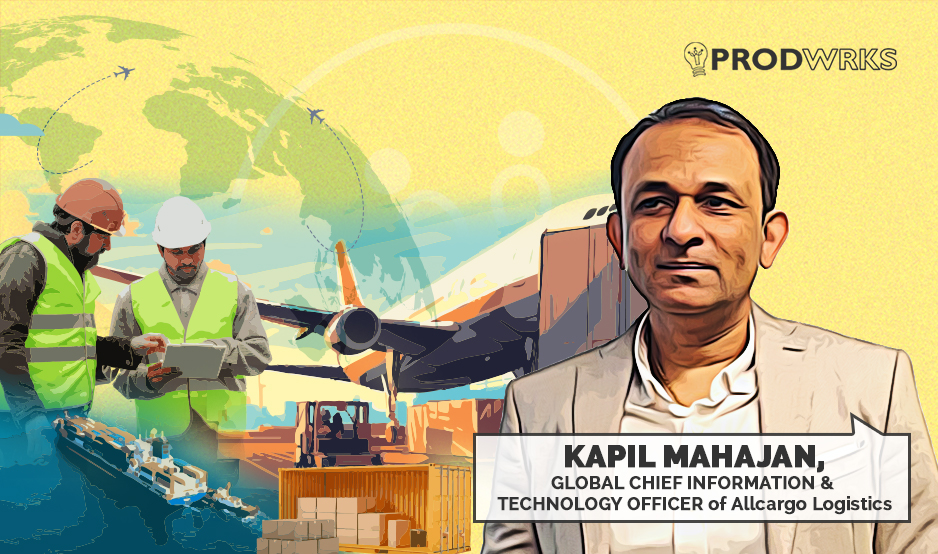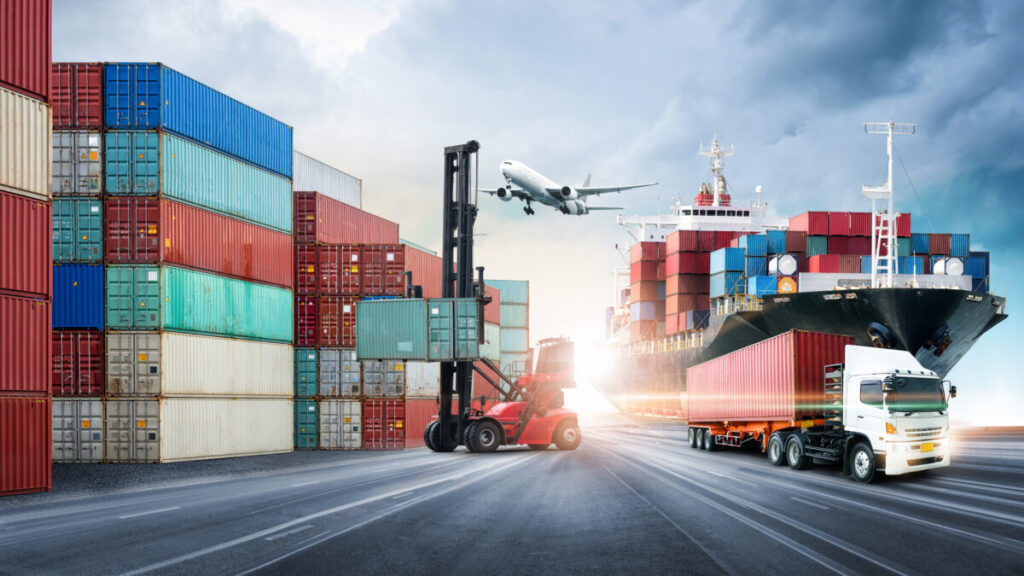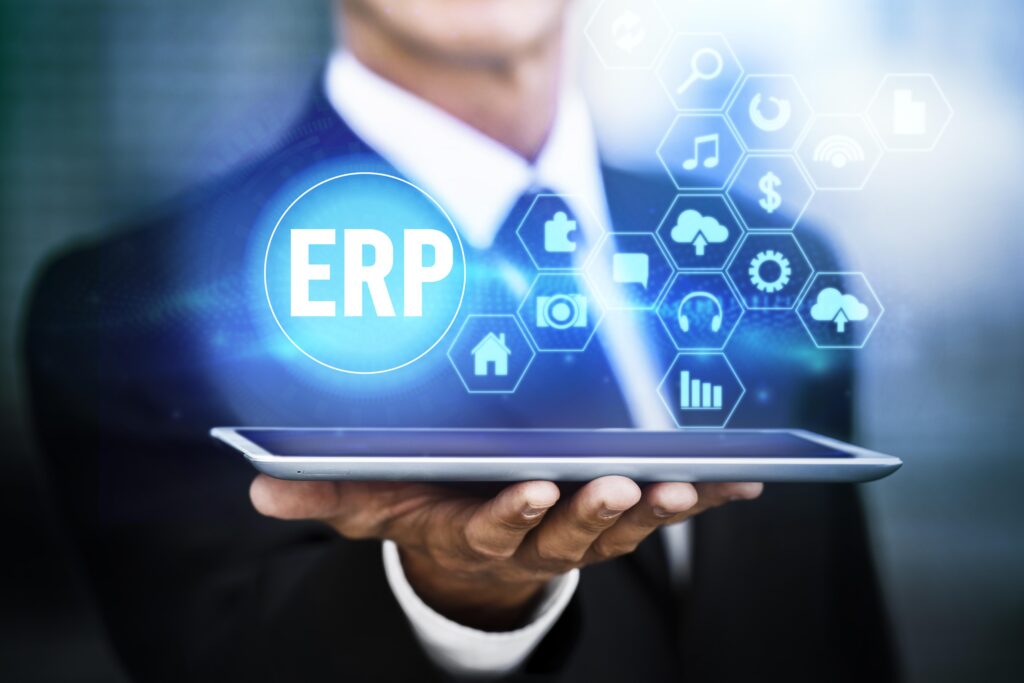
Every shipment tells a story of its own in the logistics sector. Imagine moving tonnes of cargo from bustling cities worldwide to remote towns, or vice versa. Every step in the supply chain requires precision and coordination amidst challenges that constantly test the industry’s resilience, like congested shipping routes, fluctuating fuel prices, or even weather changes.
Success in logistics demands a blend of technological innovation, pragmatism, and human expertise. Kapil Mahajan, the Global Chief Information and Technology Officer (CITO) of mumbai-based Allcargo Logistics, knows it well.
With a revenue in excess of US $2.5 billion, the Allcargo group of companies is one of India’s largest B2B non-vessel operating common carrier (NVOCC) with capabilities for express distribution (through road, air, ocean, and rail), domestic interests in container freight stations, international supply chain, and contract logistics.
Kapil Mahajan has taken up the unenviable task of spearheading the modernization and digitalization of Allcargo’s multi-modal integrated logistics and supply chain operation in India, which handles shipping to and from 180+ countries.
In an exclusive interview with ProdWrks, Mahajan tells us how he is implementing large-scale digitization projects, why a custom ERP platform for logistics and supply chain operations is critical to his digitization vision, and gives insights on building a shared services model for the Allcargo group of companies.
Allcargo’s operational verticals
Before we dive into the complexities of Mahajan’s digitization efforts, one must first understand the three main business verticals of Allcargo Logistics: Allcargo Gati, Allcargo ECU, and Allcargo Terminals.
Allcargo Gati is primarily engaged in express distribution and supply chain solutions through surface, air, and rail logistics to all pin codes in India. This includes supply chain management, e-commerce logistics, and cold chain transportation and warehousing, to name a few.
Allcargo ECU moves goods globally. It’s an LCL (less than container load) and FCL (full container load) operator or NVOCC business where they can commit to goods capacity in advance on more than 1200 to 1500 trade lanes globally.
Allcargo Terminals operates Container Freight Stations (CFS) and Inland Container Depots (ICD) across the country, where they do customs clearance for both imports and exports.
Managing the complex web of operations across all these business verticals of the Allcargo group of companies is no mean task.


"Every shipment in the system gets touched, on average, five to eight times within these businesses. It's a dance of coordination involving multiple departments and systems. Collecting goods from production plants in India to deliveries across 180 countries, each leg of the journey demands careful orchestration,” says Mahajan
Streamlining business operations with a shared services model
"Though we have the systems and tools in place, a lot of them were disparate... not talking to one another. Business doesn't work that way. Now, for these departments to work seamlessly, their systems need to work seamlessly as well. That, to me, was the number one challenge. It requires interoperability between the organizations and their systems.”
“By re-structuring the technology, we have created a shared services model. There are certain functions in technology that can be shared across the group companies. For example, we had multiple CRMs and ERPs that were running across the different business verticals of the Allcargo group. We have now decided to standardize the technologies and bring them together.”
For instance, Allcargo is standardizing the CRM function so that a common team can run central CRM operations. This common team, or center of excellence, has people who will understand and maintain a CRM system for all three companies within Allcargo.
By establishing a center of excellence and streamlining processes, Mahajan says Allcargo has unlocked new opportunities for cross-selling and upselling.
“So if I want to do a cross-sell or upsell to an Allcargo Gati customer who also wants to do exports, the system can tell them that we have a company called ECU that does exports; do you want to talk to them? With the centre of excellence team, upselling is now easier since we have standardized the CRM across the group of companies.”
Building centralized ERP systems to break operational silos


Central to Mahajan’s efforts in bridging all of All Cargo’s services together is the development of a cloud-native unified Enterprise Resource Planning (ERP) platform for uniting operations across the Allcargo group.
Drawing from his experience at Safexpress, where he spearheaded a similar transformation, Mahajan has set out to build a ground-up ERP solution tailored to Allcargo’s unique needs.
Mahajan says, “Very few logistic companies in the world have the luxury of having service verticals that bridge all aspects of logistics and supply chain. This is where we want to build a value offering. I want to see what is the technology play here that we can build so that customers get seamless experience across all our business functions.”
“We're creating the backbone to kind of help us build a tech ecosystem in logistics,” clarifies Mahajan.
Leveraging microservices model for agility and scalability
Unlike traditional off-the-shelf ERP solutions, Mahajan’s ground-up creation is designed to aid the end-to-end processes of Allcargo, leveraging microservice architecture for agility and scalability.
“The new ERP is designed to be changed infinitely. In a typical logistics operation, booking happens during the day, but transshipment happens at night because of the no-entry time zones in India. So there are different pieces of the ERP where the volumes spike up during certain hours. So in the old school system, we have to increase the infra to cater for that spike.”
“Our new ERP is developed in a true microservices model where every function works independently. I just have to increase the compute for a particular function during a spike, so my cloud spend substantially comes down. We're building this functional business capability and a cognitive platform that has intelligence built into every component. That's the vision.”
Future of B2B Logistics involves dynamic pricing strategies
Mahajan says one of the core areas where a centralized custom ERP solution will add value to Allcargo is while implementing dynamic pricing strategies.


“When I was in SafeExpress, we had paper-based operations. In five years, we moved them to a total digital native company, which means the ERP was developed ground up on the cloud. It set them up for the next 10 years in terms of how contracting and pricing will move in the country.”
“That's where the B2B world will eventually pivot towards. As you add more services and build more X factors into the product offering, you would also bring a lot of differential charging into the mix. Your ERPs must be geared to do all of that.”
“That's why, if you look at logistics and supply chain, most of the companies run their own logistics platforms, whether it's FedEx, UPS, or Walmarts of the world. They do use SAPs and other ready-made products, but their core is still custom to a large extent.”
Building cognitive capabilities with AI


“With the cloud-native ERP we are building, I'm trying to build a lot of cognitive capabilities inside, which means every business process needs to be smarter and needs to have some component of AI and machine learning. We want to look at every business process and ask, Is there an AI play here, is there a GenAI play, and is there a computer vision play?”
“There's a lot of human decision-making that happens in logistics, especially when it comes to pricing. And the objective is to kind of take the decision-making out of humans, or at least away from local agents, and make it centralized so that the processes can be streamlined.”
“People want to throw AI at everything, thinking that it is a miracle pill. But it's not. Implementing actual change on the ground and building operational AI systems at scale that solve practical issues is a totally different ballgame.”
Mahajan reckons that his objective is to look at building AI systems that are sustainable, practical, and something that Allcargo can operationalize.
“I’m focusing a lot on strategy in terms of how some of these processes and products are shaping up and looking at the business value that they can unlock other than just the technology differentiation. That's the overall journey.”
How is Allcargo using AI?
AllCargo Logistics utilizes AI and machine learning across various facets of its operations to enhance efficiency, decision-making, and customer service. Here are a few use cases highlighted by Mahajan.
- AI in Pricing and Contract Management: AllCargo is looking to employ AI algorithms to optimize pricing strategies for contracts, especially in complex scenarios involving multiple variables like volume commitments, zones, and pricing negotiations.
By analyzing historical data and current market trends, AI helps set competitive yet profitable rates. Additionally, AI assists in tracking contract commitments, detecting anomalies, and recommending adjustments to ensure adherence to pricing agreements and maximize yield. - Standardization and CRM Enhancement: The company aims to standardize systems like CRM across its group companies to streamline operations and improve customer engagement. AI interventions in CRM flows could provide sales teams with contextual insights about potential customers and automate processes like lead generation.
By leveraging AI, sales representatives can access relevant and real-time information about prospects, enhancing their preparedness and improving customer interactions.
- Automation of Proof of Delivery (PoD): AllCargo has developed an AI-powered PoD system based on computer vision technology and edge computing. This system automates the verification of delivery signatures and stamps, ensuring accuracy and efficiency in the billing process.
Edge computing ensures that the system is operational even without the internet, and it is smart enough to detect unverifiable images and send notifications to the user to click better pictures. By eliminating manual verification processes, the company reduces turnaround time and accelerates cash flow.
- Optimization of Logistics Network: Allcargo is also looking to employ AI and machine learning to optimize line haul operations. By analyzing historical data and considering factors like route efficiency and transit times, algorithms could suggest optimizations such as route consolidation and vehicle utilization improvements. These optimizations enhance operational efficiency and reduce costs.
- Operational Planning and Resource Allocation: AI and machine learning algorithms could assist in operational planning, particularly in hub operations. By analyzing patterns in truck movements, transit times, and labor requirements, these algorithms optimize resource allocation, reducing turnaround times, and improving hub efficiency.
These AI initiatives of Allcargo could not only enhance operational effectiveness but also contribute to cost savings, revenue optimization, and improved customer satisfaction.
Having a solid data management plan is key for digitization


Addressing the prevalent issue of data inconsistency in legacy operations, Mahajan underscores the foundational importance of robust master data management (MDM) for the success of Allcargo’s digitization strategy.
MDM is important to ensure accuracy and reliability while implementing cognitive AI systems and centralizing decision-making processes.
"Statistically, 90% of the data is dark in every organization. It's not structured, it's not accurate, and you don't have confidence in it. The first important thing is, how do you make it more reliable? If the data is not reliable, even the fancy tools you build will make false inferences. You cannot make boardroom decisions if you don't have the right data.”
“A customer in Gati can also be a customer in Allcargo ECU tomorrow. MDM is a project in that endeavors to build a single source of truth. We are cleansing data, building a massive data lake, and we have an ETL tool to move data securely within systems.”
“We are building analytics layers on top of everything with data visualizations to give insights to different departments. And instead of siloed analytics, I want to democratize the analytics process or the business intelligence process for the entire Allcargo group of companies.”
“Regulatory compliance is like a moving target. From the finance ministry to the transport ministry, there's a new compliance that comes in regularly that we will have to comply with. Similarly, on a global scale, we are present in 180+ countries, and we have to comply with their local regulations too. And then there is GDPR with strict guidelines on customer data.”
Invest in platforms, not software
On a concluding note, Mahajan advises product builders involved in large-scale digitization projects to invest in platforms rather than software.
“The software limits what you can do with it. Platforms give you more freedom to tailor them to your needs instead of restricting your operations within the constraints of the software. That's where the platform strategy always works.”
He adds, “The reason why we built our ERP grounds up was because there was no software that could give us the freedom to tailor it our way, which could create competitive differentiation for us. And that’s where it made complete sense to build it from scratch.”
As Allcargo continues its digitalization journey under Kapil Mahajan’s leadership, the company is poised to redefine the logistics landscape.
By embracing cutting-edge technologies, streamlining operations, and fostering a culture of innovation, Allcargo is unlocking new opportunities for growth and cementing its position as a leader in the digital age of logistics.
Mahajan says, “I'm so glad that technologies like AI and machine learning have become so mainstream now. There were times when they were not a part of the boardroom discussions. But now the discussion starts there.”



